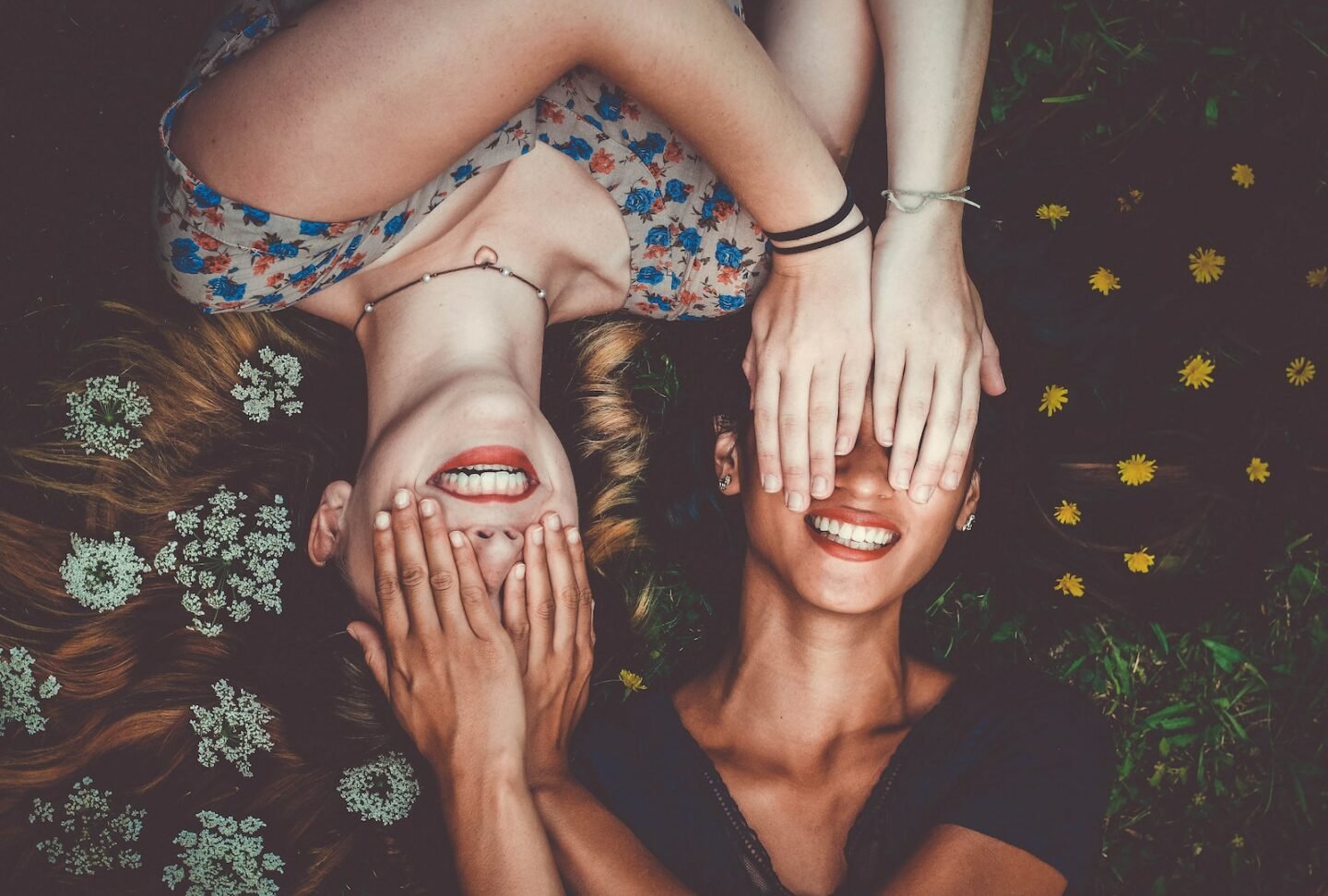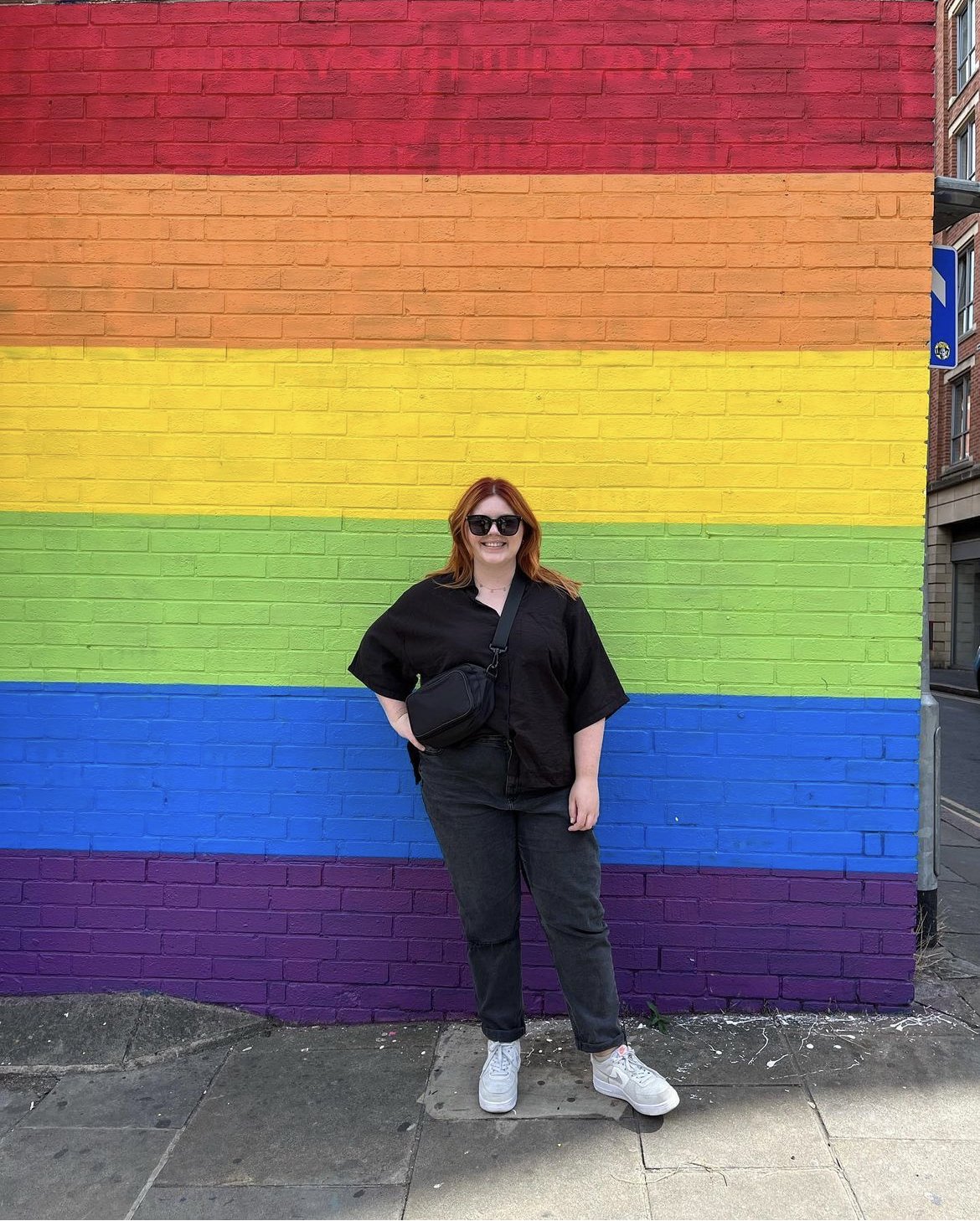When I was around nine years old, I asked an older family member if they’d ever heard about girls kissing other girls. Back then, it seemed like an exciting time for us young lassies. It was the late 90s and the Spice Girls were teaching us to be rowdy and unique, encouraging us to nurture friendships and have safe sex. Girls were having a lot of fun on the telly, but it was clear from the response I got that day that they should always stay mates and nothing more.
I was born two years before the anti-gay law, Section 28, was put into effect and spent the majority of my school years unknowingly stifled by its rippling effects. The act stated, “a local authority shall not: intentionally promote homosexuality or publish material with the intention of promoting homosexuality; promote the teaching in any maintained school of the acceptability of homosexuality as a pretended family relationship.”
Exciting times indeed.
Sex education was taught in classrooms separated by gender, and sex itself was clearly defined as that between a man and a woman. Any portrayal of queerness that may have been available to me through the education system was banned, and the law itself perpetuated the otherness of same-sex attraction in communities across the country. The vision for my future didn’t feel as though it was up for discussion and it definitely wasn’t meant to include fancying women.
Lesbian was a slur tossed around in the playground, so following the curiosities that I had for girls would’ve meant social isolation, bullying, and being branded with a label that I wasn’t brave enough to wear. There were no visibly queer adults in my life and no visibly queer children at my school. On our TV screens, Brookside’s lesbian kiss was scandalised in the national press and I certainly didn’t want that kind of attention.

Although Section 28 was repealed in 2000, by that time I was fourteen years old and the internalised homophobia was already bone-deep. It’s easy to look back now and blame the law for my repressed sexuality, and there are plenty of other young people from that era who were certain about their queerness and chose to be open about it, but it cast a powerful shadow on my autonomy.
I was too much of a conformist, good girl, and grade-A rule-follower to even consider questioning my sexuality. I took for granted that the people who governed my life knew best. They told me I was straight, so I believed them.
In my later teenage years, I wavered briefly, kissing girls and sleeping with a friend towards the end of high school. At best, we passed it off as experimenting. At worst, we were shamed for our behaviour. When I moved out of the family home to go to university, I fell for a boy and everything seemed so much easier once I had the mask of a heterosexual relationship to hide behind.
Under the surface, of course, things were very different.
I drank a lot of Merlot to dull an ache that I couldn’t articulate. I was diagnosed with depression and anxiety in my mid-twenties and was too unwell to work for quite some time. Had I been offered talking therapy at this point, I do wonder if I’d have uncovered the truth about myself a lot sooner. Instead, I was prescribed medication, got back to work, started writing professionally and married – yep, you guessed it – the boyfriend from university!
It wasn’t until the pandemic in 2020 that I finally felt ready to get private mental health care. After putting some pieces together about sexual abuse I experienced as a teenager and increasingly painful penetrative sex as an adult, I sought out psychosexual therapy with the aim of healing my sex life.
I quickly realised after a few sessions of therapy that I really, really, really did not want to take practical steps towards having sex with a man. Two years passed, and as the therapy progressed I also developed unexplained chronic pain. Add in a depression relapse and I was bedbound for what felt like months, with nothing more than my psyche for company.

The second, more profound realisation came in that ungodly week between Christmas and New Year. I was staying in my childhood bedroom and memories came flooding back about all the girls I kissed as a teenager and the friend I’d slept with when I was seventeen. Tired of fighting and pretending to be OK, I gave in and allowed myself to look at those experiences directly, to feel into them and get radically honest about what they meant to me and how they linked to my current unresolved pain. What I uncovered that night was that those memories were brimming with pleasure, but more importantly, an ease and authenticity that I had never once experienced with a man.
The coming out part was quick and happened just a few weeks after my thirty-fifth birthday. I left my husband on good terms, although it’s still too soon to have much contact as I reconcile this huge part of myself that continues to expand as a consequence of our breakup.
Perhaps the most surprising thing has been the sense that coming out has been an extremely spiritual experience. I always thought journaling and meditation were a way to silence the negative voices in my head, but now I see that they are a tool for turning up the volume on all the facets of me so that I can hear my voice in all its glory. I think there’s a reason why lesbians are super into tarot, it’s because we’re inherently more connected to our intuitive powers.
Being in a heterosexual relationship closed me off to so much of the queer experience. Now, I’m able to fully embrace what it means to be queer, which to me means challenging the status quo in all areas of life and finally listening to my intuition instead of the expectations that are projected onto me by the systems I exist in.
It’s not been easy, and I’m so grateful to have friends and family who have supported me through this transitional season of my life. Now, I’m dating women, living in Glasgow (the city that I’m proud to call my home), I’m exploring queer spaces and expressing everything I kept hidden via new avenues such as poetry and tarot readings. Coming out has given me the freedom to redefine everything about myself, the way I should have been able to when I was a teenager listening to the Spice Girls and wondering what that Brookside kiss was all about.
We cannot get the time back, but we can sure as hell make up for it.
If you liked this story why not check out the other stories in this series? Or if you would like to submit your own get in touch at info@nonchalantmagazine.com.
If you are struggling and need some support please reach out, below are a list of helplines and websites you can visit;
Stonewall – you can visit their website or call on FREEPHONE 0800 0502020, lines are open 9:30-4:30.
Switchboard LGBT + Helpline – 0300 330 0630 lines open 10-10 daily.
The Mix – call their helpline on 0808 808 4994.
